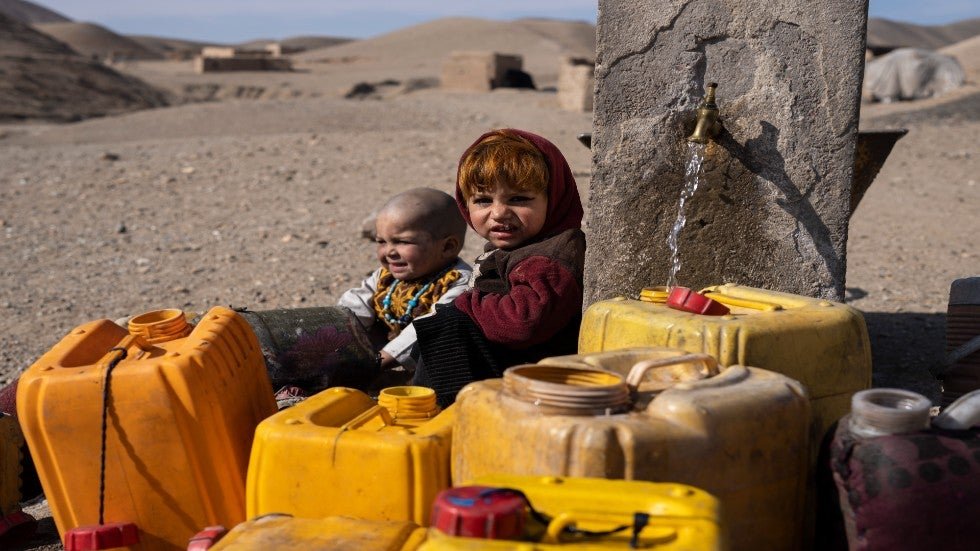Afghanistan is on the brink of total collapse — unless the world steps in | TheHill – The Hill
© 1998-2021 Nexstar Media Inc.
All Rights Reserved
Afghanistan is in free fall. The economic contraction triggered by the Taliban takeover is unprecedented. A projected 30 percent loss of its gross domestic product could occur within a year. The economy is imploding and there is no cash left for people’s everyday transactions.
Humanitarian workers are in a race against time to help people through a harsh winter. This work is vital, but far from sufficient. We can clearly see the limits of our humanitarian mandate and the need for more systemic, sustainable support. Without both, chaos ensues.
Afghanistan is a country historically shored up by external aid. It is now untethered as international political positions have hardened against the new de-facto rulers in Kabul and previous channels of support have been shut down. Salaries of key public sector workers — doctors, nurses and teachers — have not been paid in months. Health facilities have no means to pay for fuel to run generators or ambulances. Basic service delivery is at risk of collapse, and the people who depend on these services are the unintended victims.
Without bolder international support to maintain the indispensable social functions of the state, it will not be possible to prevent death in Afghanistan this winter. Already starved by the worst drought in 20 years, two-thirds of the population will depend on food assistance in 2022, the World Food Program estimates. Children will succumb to high levels of malnutrition, first dying from preventable diseases, then from outright starvation. With no health clinics to go to, more women will die giving birth. Families will face freezing winter temperatures without electricity or clean water.
In the end, Afghans may lose all hope and leave the country. What does it require to reverse this grim prospect?
First, donors must continue to give generously to the humanitarian response, as they have done since August. Next year, Afghanistan’s humanitarian plan, at $4.47 billion, will be the largest ever country-specific appeal. Over 24 million people are now in need of lifesaving and life-sustaining assistance across the country. UN agencies and humanitarian partners aim to reach more than 90 percent of them — a staggering 22 million people — with food, water, health, protection, shelter, education and other forms of vital support. They need donor support.
Second, there must be greater flexibility in what donor funding can be used for, including salaries for public sector workers and support to structures delivering basic services such as health, education and assistance to support citizens’ livelihoods. This will provide an incentive for people to remain where they are and prevent a chaotic wave of mass migration.
It is important to be clear that supporting these structures does not mean financing Taliban cadres. Public administration in Afghanistan is managed by public sector workers, almost all of whom were in these jobs before the Taliban takeover. The structures they maintain are essential to avoid the destabilization of the state. Let’s not pretend for a minute that state services can be effectively maintained or replaced by humanitarian programs. Relief is a necessary stopgap measure to save lives here and now. But it is never the solution. And the crisis in Afghanistan is today already beyond humanitarian proportions.
Third, international engagement needs to establish a carefully calibrated dialogue with the Afghan de facto authorities. This could include the relaxing of, or relief from, some economic sanctions or a phased reintroduction of longer-term development assistance in response to progress on issues of international concern such as women’s and girls’ rights.
The current international engagement with Afghanistan is not fit for purpose. The world sits back waiting for the Taliban to make undefined progress on a series of international norms without taking the necessary steps to enable this. The Taliban, on the other hand, is either unwilling to meet these expectations or unclear about their intentions.
The consequences are clear for anyone to see: The state is disintegrating, the region is being destabilized and people are running out of hope.
A business as usual approach virtually guarantees international failure. Instead, the international community has a responsibility to be much more decisive, more demanding and more engaged than is currently the case in a wary diplomatic process.
This is happening on our watch. We need to take action to stop the people of Afghanistan from hitting rock bottom this winter by funding the basic services necessary for their survival.
The sooner we begin a structured, meaningful and reciprocal engagement with Afghanistan, the better our chances of achieving that.
Peter Maurer is president of the International Committee of the Red Cross. Martin Griffiths is undersecretary-general for humanitarian affairs and emergency relief coordinator for the United Nations.
View the discussion thread.
The Hill 1625 K Street, NW Suite 900 Washington DC 20006 | 202-628-8500 tel | 202-628-8503 fax
The contents of this site are © 1998 – 2021 Nexstar Media Inc. | All Rights Reserved.




